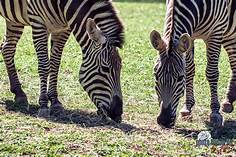Contribution of game meat to total world meat production and consumption is apparently very small, according to reports the world Food and Agriculture Organization (FAO).
In an article titled ‘The new international market for game meat’ FAO cites that records of game meat trade and consumption are even less documented in the international meat trade platforms. “Accurate statistical information is grossly lacking. In many countries even statistical data on conventional meats produced by agriculture leave much to be desired, so the situation can only be worse in the field of game meat,” reads the report in part.
With only developed countries like the United States and some countries in central and northern Europe being recognized for keeping track of game meat, Tanzania has taken an unprecedented step in legalizing the trade of game meat, and keeping of accurate data of the trade.
The development comes under President John Magufuli’s order early this year to allow sale of game meat across the country. The president said it was much better to legalize and regulate the trade rather than fighting illegal hunting and trading of game meat.
Currently, figures show that about 2,000 tonnes of game meat valued at over $50 million, is seized annually in the country. Paramilitary operations in the country’s wildlife parks and game reserves have resulted in the arrest of some 11,838 illegal hunters in the span of the last four years.
Regulating Game Meat Trade In Tanzania
The president said the move will also serve to boost the agriculture sector of the economy while creating employment. However, he was also very adamant as to the strict regulation that must accompany the trade.
All game meat must be slaughtered at a licensed meat abattoir and at which point, the trader must surrender the related trophies like skull and skin. This applies to game meat traders alone; only if the trader/hunter has a trophy ownership certificate can they get to keep their trophy.
After the slaughter, the trader is allowed to set a sell point or butcher to be operated under ‘a ministerial committee composed of professionals in wildlife veterinarian; wildlife management; food and drugs control; health control management and meat inspection’ writes local media.
It did not take long after the president made the announcement that the first selling point was set up in the country’s capital city Dodoma starting the sell at $2 per kilogramme.
The trade of game meat is not only on the end side of consumption but also in the production side with the Tanzania Wildlife Management Authority (Tawa) encouraging investors to set ranches where they will be provided with young game to rear for sale in the country’s game meat industry.
By policy and by financial investment Tanzania has taken strides well ahead of other African countries to formalize and regulate trade of game meat. With the opening of the first game meat butchery in the country’s administrative capital, Dodoma, more of these game meat outlets are anticipated to mushroom across the country.
However, there is a catch. How safe is game meat?
Pros and Cons of Game Meat Consumption
Experts are warning against consumption of game meat or at least urging moderate to little consumption.
For example, the most recent is a warning against game meat from the Mara-Serengeti wildlife ecosystem that extends from the Masai Mara in Kenya to the Serengeti in Tanzania.
According to Vivek Kapur, a professor of microbiology and infectious diseases from Penn State University, game meat from these favorite wildlife reserves contains several groups of bacteria that cause anthrax, brucellosis and Q fever.
Dr. Kapur, who is also the Associate Director of Huck Institutes of the Life Sciences, issues the warning in his latest Scientific Reports. He warned that these deadly micro-organisms were found present in each of 56 fresh and processed bush meat samples that were collected from this ecosystem.
Researchers and experts from University Park in Pennsylvania US and the Nelson Mandela African Institution of Science and Technology in Arusha, as well as the Biosciences eastern and central Africa-International Livestock Research Institute Hub in Nairobi, all agreed that the risk of infection is serious.
https://theexchange.africa/industry-and-trade/agribusiness/uganda-european-market-beef-meat/
Consume at your own risk
The move, meanwhile, will now enable hotels and restaurants to include bush-meat on the menu regularly. It is up to big fun of the wild animals fresh to beef up their wallets and experience the unique taste of their choice.
The move will also enable Tanzanians to harvest wild animals for selling and consumption.
The study notes bush-meat represents an important source of animal protein with a recent survey in regions surrounding the Greater Serengeti ecosystem suggesting that between two and five bush-meat meals are consumed per week per household.
The samples were collected from the predominant large herbivores in the region including wildebeest, buffalo, as well as some less common wildlife species including eland, Thomson’s Gazelle-gazelle, zebra, giraffe, wild rabbit, topi, porcupine, and warthog.
At this point it is worth revisiting the game meat that is sold at the first legal game meat butchery in Tanzania. Local media quoted the owner of the butchery as saying the wild animal meat available at his newly opened establishment include buffalo, gazelle, oryx, antelope, zebra, pouffe and ostrich meat.1
You will note that two of the warned game meat – zebra and gazelle – appears on the butchery’s list. However, this is not to say that the game meat is infected because the meat goes through thorough check right from the slaughter house, but rather it is to raise caution as more and more outlets open.
Authorities will have to be vigilant as to which areas they allow the game meat to be hunted from and/or reared in and also for thorough check of the meat upon slaughter.
https://theexchange.africa/countries/kenya/kenya-meat-consumption-goldmine-demand-shortage-importation-neighbouring-countries/
